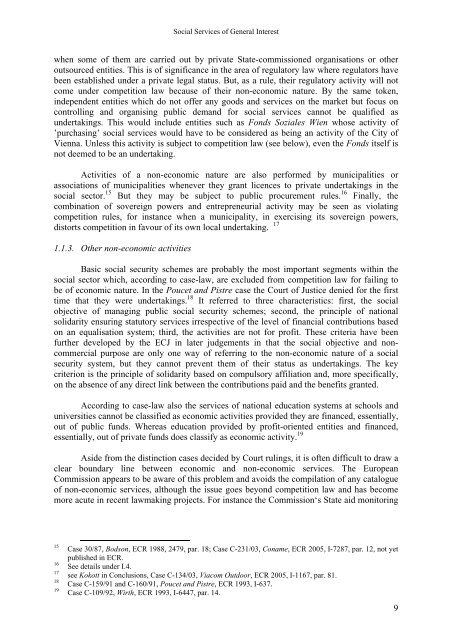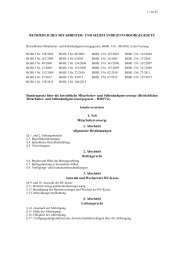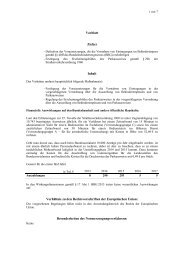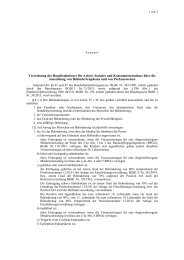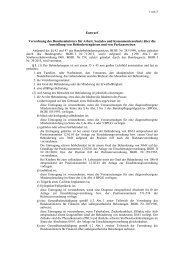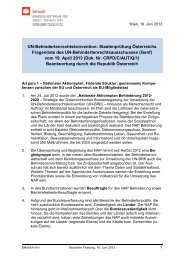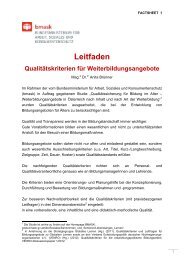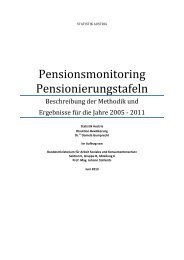Social Services of General Interest (SSGI)
Social Services of General Interest (SSGI)
Social Services of General Interest (SSGI)
You also want an ePaper? Increase the reach of your titles
YUMPU automatically turns print PDFs into web optimized ePapers that Google loves.
<strong>Social</strong> <strong>Services</strong> <strong>of</strong> <strong>General</strong> <strong>Interest</strong><br />
when some <strong>of</strong> them are carried out by private State-commissioned organisations or other<br />
outsourced entities. This is <strong>of</strong> significance in the area <strong>of</strong> regulatory law where regulators have<br />
been established under a private legal status. But, as a rule, their regulatory activity will not<br />
come under competition law because <strong>of</strong> their non-economic nature. By the same token,<br />
independent entities which do not <strong>of</strong>fer any goods and services on the market but focus on<br />
controlling and organising public demand for social services cannot be qualified as<br />
undertakings. This would include entities such as Fonds Soziales Wien whose activity <strong>of</strong><br />
’purchasing’ social services would have to be considered as being an activity <strong>of</strong> the City <strong>of</strong><br />
Vienna. Unless this activity is subject to competition law (see below), even the Fonds itself is<br />
not deemed to be an undertaking.<br />
Activities <strong>of</strong> a non-economic nature are also performed by municipalities or<br />
associations <strong>of</strong> municipalities whenever they grant licences to private undertakings in the<br />
social sector. 15 But they may be subject to public procurement rules. 16 Finally, the<br />
combination <strong>of</strong> sovereign powers and entrepreneurial activity may be seen as violating<br />
competition rules, for instance when a municipality, in exercising its sovereign powers,<br />
distorts competition in favour <strong>of</strong> its own local undertaking. 17<br />
1.1.3. Other non-economic activities<br />
Basic social security schemes are probably the most important segments within the<br />
social sector which, according to case-law, are excluded from competition law for failing to<br />
be <strong>of</strong> economic nature. In the Poucet and Pistre case the Court <strong>of</strong> Justice denied for the first<br />
time that they were undertakings. 18 It referred to three characteristics: first, the social<br />
objective <strong>of</strong> managing public social security schemes; second, the principle <strong>of</strong> national<br />
solidarity ensuring statutory services irrespective <strong>of</strong> the level <strong>of</strong> financial contributions based<br />
on an equalisation system; third, the activities are not for pr<strong>of</strong>it. These criteria have been<br />
further developed by the ECJ in later judgements in that the social objective and noncommercial<br />
purpose are only one way <strong>of</strong> referring to the non-economic nature <strong>of</strong> a social<br />
security system, but they cannot prevent them <strong>of</strong> their status as undertakings. The key<br />
criterion is the principle <strong>of</strong> solidarity based on compulsory affiliation and, more specifically,<br />
on the absence <strong>of</strong> any direct link between the contributions paid and the benefits granted.<br />
According to case-law also the services <strong>of</strong> national education systems at schools and<br />
universities cannot be classified as economic activities provided they are financed, essentially,<br />
out <strong>of</strong> public funds. Whereas education provided by pr<strong>of</strong>it-oriented entities and financed,<br />
essentially, out <strong>of</strong> private funds does classify as economic activity. 19<br />
Aside from the distinction cases decided by Court rulings, it is <strong>of</strong>ten difficult to draw a<br />
clear boundary line between economic and non-economic services. The European<br />
Commission appears to be aware <strong>of</strong> this problem and avoids the compilation <strong>of</strong> any catalogue<br />
<strong>of</strong> non-economic services, although the issue goes beyond competition law and has become<br />
more acute in recent lawmaking projects. For instance the Commission‘s State aid monitoring<br />
15<br />
Case 30/87, Bodson, ECR 1988, 2479, par. 18; Case C-231/03, Coname, ECR 2005, I-7287, par. 12, not yet<br />
published in ECR.<br />
16<br />
See details under I.4.<br />
17<br />
see Kokott in Conclusions, Case C-134/03, Viacom Outdoor, ECR 2005, I-1167, par. 81.<br />
18<br />
Case C-159/91 and C-160/91, Poucet and Pistre, ECR 1993, I-637.<br />
19<br />
Case C-109/92, Wirth, ECR 1993, I-6447, par. 14.<br />
9


